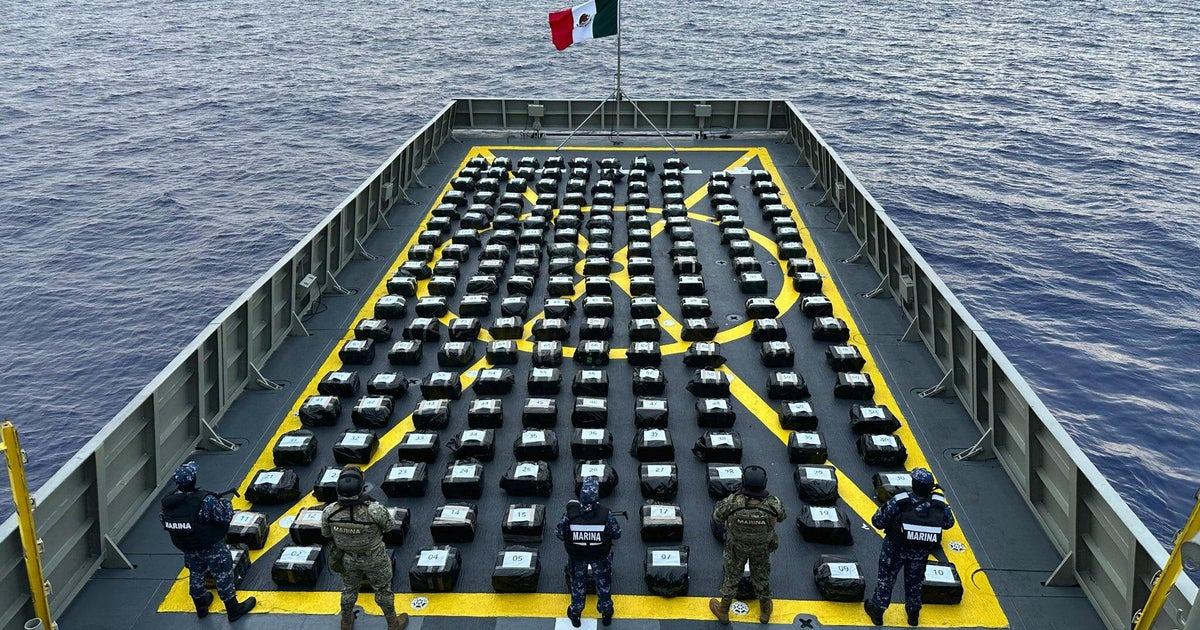El Salvador authorities burn 2.7-ton pile of cocaine amid crackdown on gangs and drug trafficking
Authorities in El Salvador burned a 2.7-ton pile of cocaine worth an estimated $67.5 million. Salvadoran police released images and video this week of the huge pile of drugs being burned in the town of Ilopango, east of the capital San Salvador.
The cocaine was seized in May more than 1,000 miles off the coast of El Salvador from seven men in boats. Two Ecuadorians, two Colombians and three Mexicans were arrested. Police did not detail their exact charges.
El Salvador's government has implemented a widespread crackdown on gangs and drug traffickers since the election of President Nayib Bukele in 2019. He was inaugurated for a second term on June 1 after being reelected with 85% of the vote. Under his leadership, the government declared a state of emergency in March 2022 that led to mass arrests of tens of thousands of suspected gang members.
Recently, El Salvador's government transferred around 2,000 suspected gang members from prisons around the country to a new 40,000-capacity "mega prison" in Tecoluca, southeast of the capital. In a highly produced video shared by Bukele on social media, the prisoners are seen being escorted into the facility under heavily armed guard. Bukele pledged the prisoners would "pay for the crimes committed against our people."
Gang violence was widespread in the country for decades, with official estimates placing the number of gang members in the country between 60,000 and 86,000, according to Human Rights Watch. El Salvador had a longstanding high homicide rate, which peaked at 105 per 100,000 people in 2015, before falling to a historic low in 2022.
The Bukele government's anti-crime tactics have come under fire from human rights groups over concerns for due process and arbitrary confinement.
As of February of this year, more than 78,000 arbitrary detentions have been registered leading to prison overcrowding of approximately 148%, with at least 235 deaths in state custody, according to Amnesty International. The organization also reported 327 enforced disappearances.
Human Rights Watch warns that Bukele's government has "systematically dismantled democratic checks and balances." The country's constitution prohibits immediate reelection of the president, but a court decision paved the way for Bukele's return.
The Biden administration has also expressed concern, turning down a meeting request with Bukele in 2021 and sanctioning several of his top aides.
However, U.S. relations with Bukele appear to have shifted as a high-level delegation was sent to attend his second-term inauguration. The Associated Press reported the change could be attributed to a shift in the Biden administration's priorities in addressing illegal immigration. El Salvador's public security policies are credited with a 60% drop in migration from the Central American country to the U.S. since Bukele took office.



